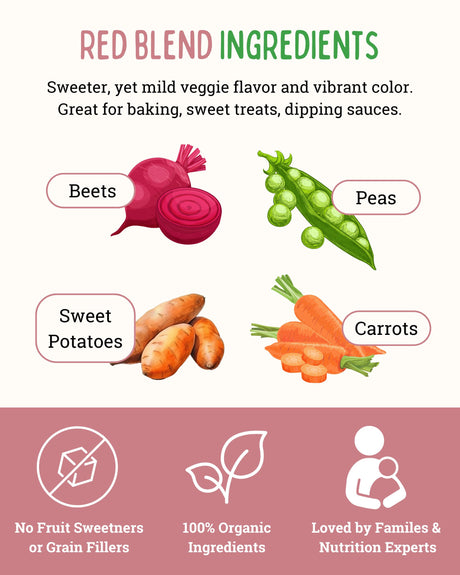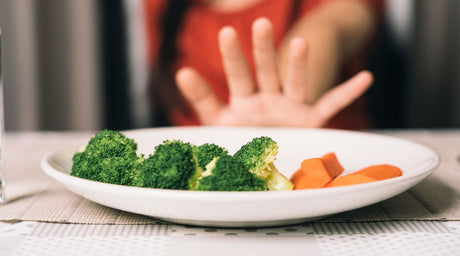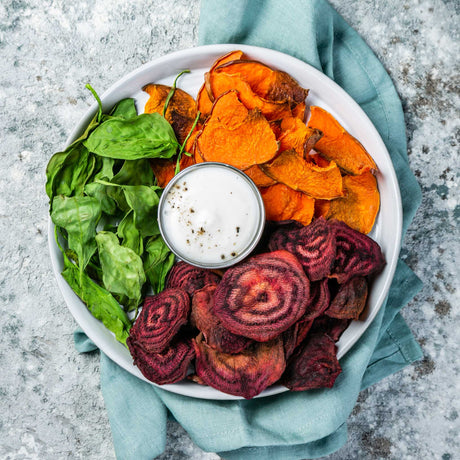Fostering Nutritional Habits
In the hustle and bustle of modern family life, afternoons can be a whirlwind of activities, homework, and various responsibilities. It's during this crucial time that the significance of healthy after-school snacks comes to the forefront.
These snacks serve as more than just quick bites; they are building blocks for a child's growth, both physically and mentally.
The Importance of Healthy After-School Snacks
Healthy after-school snacks are the nutritional secret weapon that parents can wield to ensure their children thrive. After a long day at school, kids often experience a dip in energy levels and an increase in hunger.
Providing them with nutritious snacks can help stabilize their blood sugar, preventing the energy crashes that lead to irritability and sluggishness. Beyond mere sustenance, these snacks offer an opportunity to introduce essential vitamins, minerals, and other nutrients into a child's daily intake.
The Role of Snacks in a Child's Diet
Snacks, when chosen wisely, serve as more than just fillers between meals. They play a pivotal role in a child's overall diet. By incorporating nutrient-dense options, parents can ensure that their kids receive the vital components necessary for proper growth and development.
Healthy after-school snacks are not just about immediate satiety; they are an investment in a child's long-term health and well-being, setting the stage for a lifetime of smart eating choices. So, let's explore the world of nutritious and delicious after-school snacks that will keep your child's body and mind fueled and ready for action!
Nutritional Considerations

Fueling Growing Bodies
When it comes to after-school snacks, it's essential to consider the specific nutritional needs of children. As they transition from a day of learning and play at school to the afternoon's activities, their bodies require a well-rounded mix of nutrients to sustain them.
This includes carbohydrates for energy, protein for growth and muscle development, and healthy fats for overall health.
Balancing Macronutrients and Portion Sizes
Finding the right balance of macronutrients (carbohydrates, protein, and fats) is key to creating satisfying and nourishing after-school snacks. While carbohydrates provide a quick energy boost, protein helps keep hunger at bay and supports growth.
Including healthy fats can contribute to satiety and provide essential nutrients. It's crucial to strike a balance that suits your child's individual needs, as well as considering portion sizes to ensure they get the right amount without overeating.
By understanding these nutritional considerations, parents can make informed choices when preparing after-school snacks that are not only delicious but also provide the nutrients necessary for their child's well-being and development.
Fresh Fruit Delights

A Healthier Choice
Fresh fruits are a nutritional powerhouse and an excellent choice for after-school snacks. They come with a host of benefits that can contribute to your child's well-being.
Not only are they naturally sweet and delicious, but they also provide essential vitamins, minerals, and fiber. These nutrients support overall health and offer a steady source of energy, making fresh fruits an ideal option for your little ones.
Creative Fruit Snack Ideas: Turning Healthy into Fun
Encouraging children to embrace fresh fruits can be an exciting journey. One creative approach is to turn these nutritious snacks into fun and appealing treats. Consider crafting colorful fruit skewers using a mix of strawberries, pineapple chunks, and melon balls.
You can also provide a yogurt dip for them to dunk their fruit, adding an extra layer of flavor and nutrition.
Exploring Veggie-Based Snacks
Incorporating vegetables into after-school snacks can be both nutritious and enjoyable for kids. Instead of relying solely on traditional snacks, consider exploring the world of vegetable-based snacks. These snacks provide an opportunity to introduce different vegetables and their flavors to children in a fun and engaging way.
Veggie Power
Creative Veggie Snack Ideas
There are countless creative ways to incorporate veggies into after-school snacks. One approach is to use products like EasyPeasie Veggie Blends. These dried and ground vegetable blends are a convenient way to infuse vegetable flavors into various snacks and dishes.
Whether you're making smoothies, yogurt parfaits, or even savory snacks like popcorn, EasyPeasie Veggie Blends can add a nutritious twist to your child's snacks.
Making Veggies Fun
Making vegetables fun for kids is essential to encourage them to eat more. You can create veggie-based snacks that are visually appealing and exciting. For instance, try making colorful vegetable skewers with cherry tomatoes, cucumber slices, and bell pepper pieces.
Use cookie cutters to shape vegetables into fun designs or make vegetable "bugs" using celery sticks and carrot slices. By making veggies visually appealing and fun, you can pique your child's interest and make them more likely to enjoy these snacks.
Protein-Packed Options
Importance of Protein in Snacks
Protein is an essential nutrient for growing kids, and incorporating it into their after-school snacks can help keep them satisfied and energized until dinner. Emphasize the importance of including protein in their snacks to provide the necessary building blocks for growth and development.
Protein-Rich Snack Ideas
There are plenty of delicious and protein-packed snack ideas that kids will love. Consider making Greek yogurt parfaits with layers of yogurt, fresh berries, and a sprinkle of granola for added crunch and protein.
You can also create homemade protein balls by mixing peanut butter, oats, honey, and chocolate chips. These bite-sized treats are not only tasty but also provide a good dose of protein.
EasyPeasie Veggie Blends with Protein
To enhance the protein content of snacks, you can incorporate EasyPeasie Veggie Blends. These blends not only add vegetable nutrition but can also be combined with yogurt, dips, or even sprinkled on top of sandwiches to increase the protein content.
It's a convenient way to boost the nutritional value of snacks while keeping them delicious and satisfying for kids.
Dairy and Dairy Alternatives
Role of Dairy and Dairy Alternatives
Dairy products and their alternatives play a crucial role in providing calcium and other essential nutrients to growing children. Calcium is vital for strong bones and teeth, making it an important component of after-school snacks.
While traditional dairy options like milk, yogurt, and cheese are excellent choices, there are also non-dairy alternatives available for those with lactose intolerance or dietary preferences.
Calcium-Rich Snack Choices
To ensure kids get their dose of calcium in their after-school snacks, you can offer options like Greek yogurt, which is not only a good source of calcium but also provides protein. Additionally, cheese sticks or cheese cubes are convenient and delicious choices.
For those who prefer non-dairy options, fortified almond milk or soy yogurt can provide the necessary calcium intake.
EasyPeasie Veggie Blends with Dairy
You can also combine EasyPeasie Veggie Blends with dairy or dairy alternatives to create calcium-rich snacks. Mixing veggie blends into yogurt or using them as a topping for a cheesy whole-grain snack can be a creative and nutritious way to enhance calcium intake while adding vegetable nutrition to kids' snacks.
Homemade vs. Store-Bought Snacks

Pros and Cons of Homemade Snacks
Homemade snacks allow parents to have complete control over the ingredients, making it easier to ensure they are nutritious and tailored to individual preferences. However, they can be time-consuming to prepare, which may not always be convenient for busy parents.
Tips for Making Healthier Store-Bought Choices
Store-bought snacks, on the other hand, are convenient and can be a time-saver. However, it's essential to read labels carefully and choose snacks that are low in added sugars, unhealthy fats, and artificial additives.
Look for options that provide whole grains, protein, and fiber to keep kids satisfied and nourished. Keep portion sizes in mind to avoid excessive calorie intake. EasyPeasie Veggie Blends can also be a valuable addition to store-bought snacks, adding vegetable nutrition and flavor without the need for extensive preparation.
Snacking Mindfully
Educating Kids
Parents and caregivers can educate their children about the importance of mindful eating by discussing how different foods make them feel. Encourage kids to recognize when they're truly hungry versus eating out of boredom or emotions.
Portion Control
Another aspect of mindful eating is portion control. It's essential to help children understand appropriate portion sizes for snacks. You can use visual aids like comparing a serving of nuts to the size of their palm or a piece of cheese to a pair of dice.
Moderation
Encourage moderation in snacking. Teach children that it's okay to enjoy their favorite treats occasionally but emphasize the importance of balancing them with healthier options. This helps prevent overindulgence and promotes a well-rounded diet.
By incorporating these mindful eating principles into snack time, parents can help their children develop a healthy and balanced approach to food.
Healthy After-School Snacks are Essential

Creating a Snack-Friendly Environment
To promote healthy snacking habits, it's crucial for parents to create a snack-friendly environment. This involves having a variety of wholesome snacks readily available, encouraging children to make smart snack choices, and involving them in snack preparation.
By making snack time fun and nutritious, parents can set the stage for lifelong healthy eating habits.
Empowering Kids Through Nutrition
Remember that teaching children about the importance of nutrition and involving them in snack decisions can empower them to make healthy choices independently. As parents, caregivers, and educators, our role is to provide guidance and positive examples while allowing kids to develop a healthy relationship with food.
With the right knowledge and approach, we can help our children grow up to be healthy and happy individuals.
Leave your comments below; we love to hear from you! And don't forget to follow EasyPeasie for more veggie info and convo on YouTube, Facebook, and Instagram! ~ThePeas













